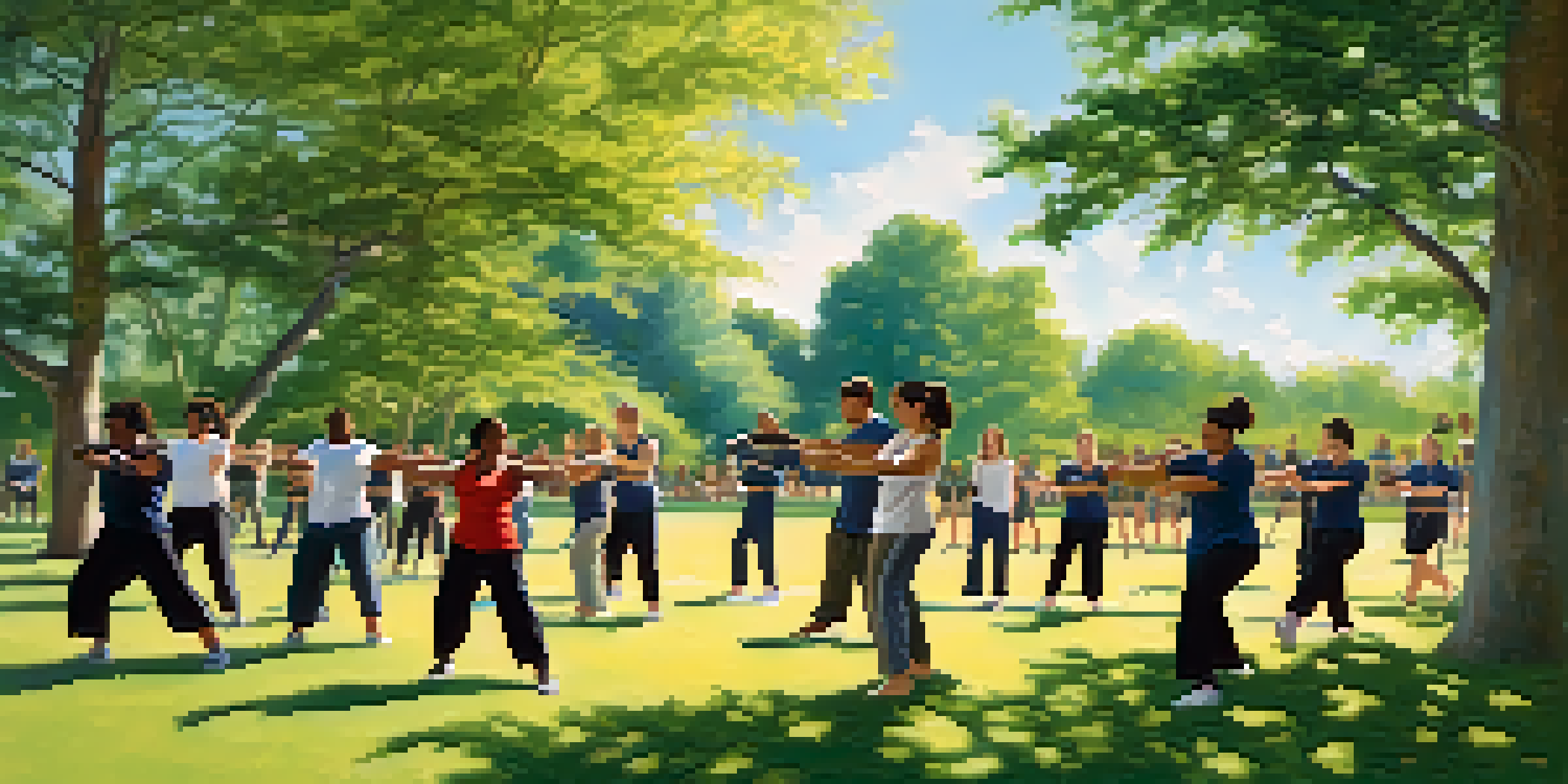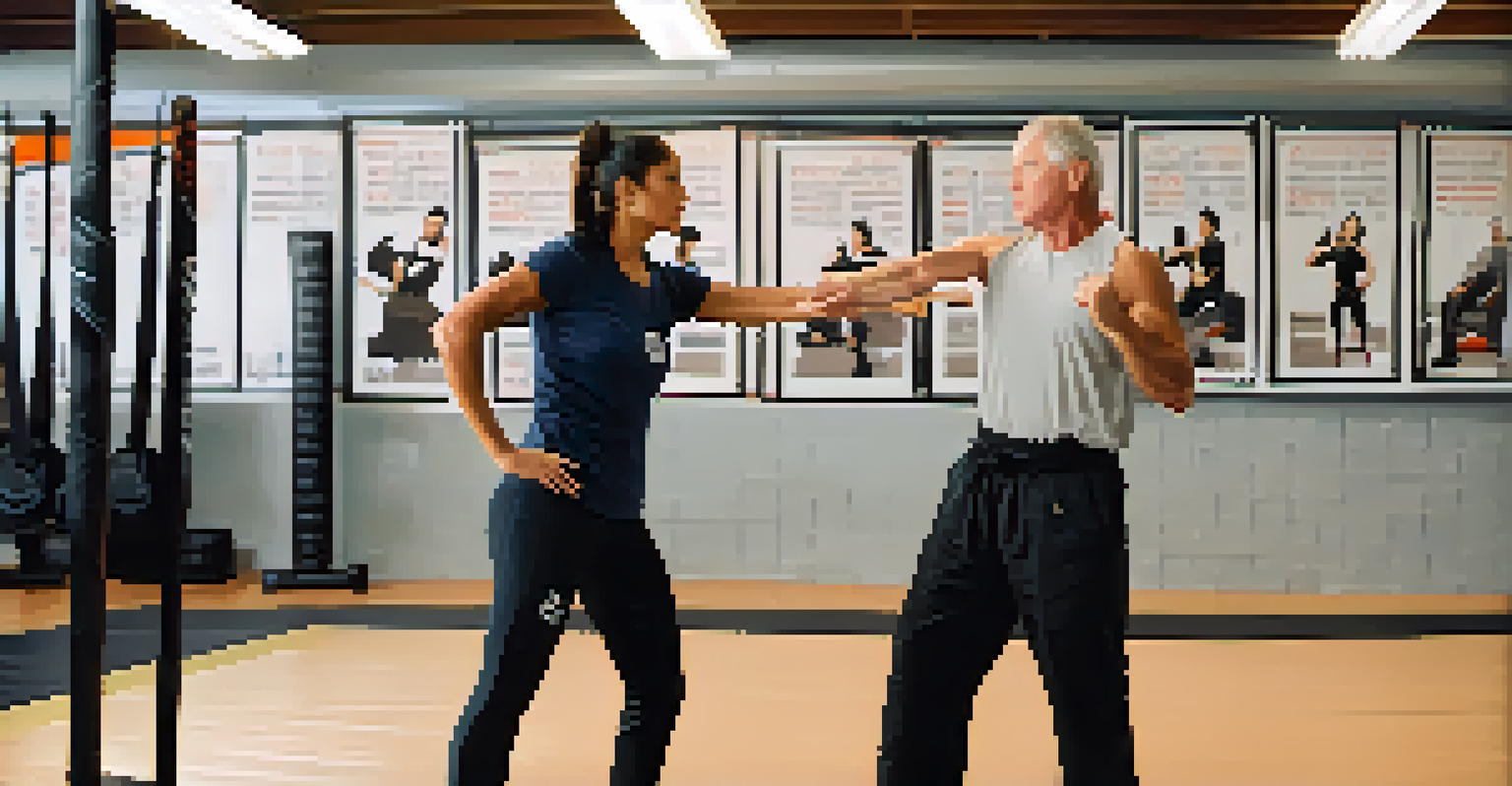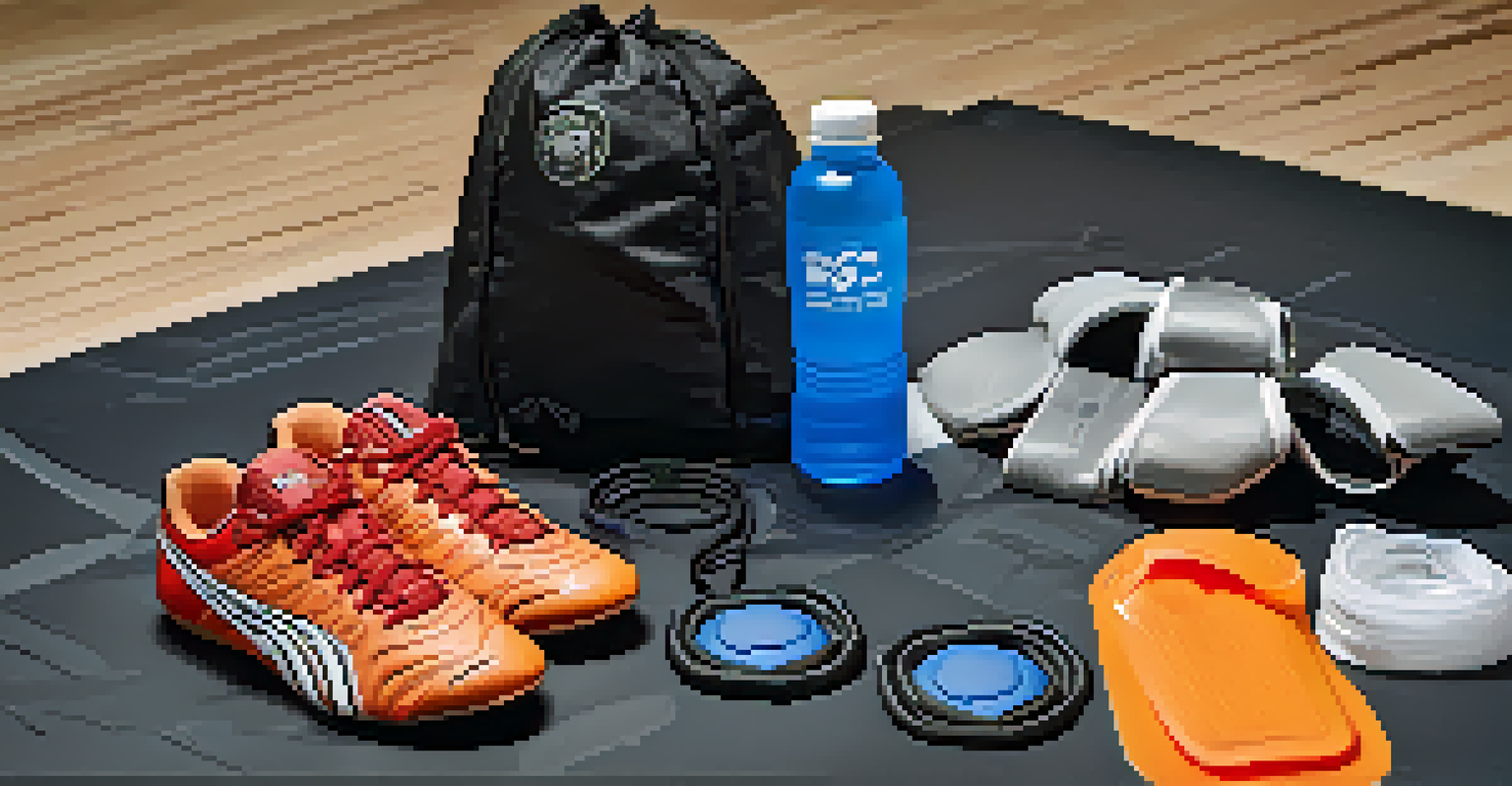Self Defense Training for Beginners: Getting Started Safely

Understanding the Importance of Self Defense Training
Self-defense training is essential for anyone looking to enhance their personal safety. It empowers individuals to protect themselves and build confidence in their abilities. The importance of self-defense goes beyond physical techniques; it also encompasses mental preparedness and awareness of one’s surroundings.
Self-defense is not just a set of techniques; it's a mindset that empowers you to take control of your safety.
Consider the scenario of walking alone at night. Knowing basic self-defense can provide peace of mind, allowing you to navigate your environment with greater assurance. By understanding potential threats and employing strategies to counter them, you not only protect yourself but also cultivate a sense of control over your safety.
Moreover, self-defense training fosters a proactive mindset. Instead of waiting for a harmful situation to arise, it encourages individuals to be vigilant and prepared, which can significantly reduce the chances of encountering danger in the first place.
Choosing the Right Self Defense Class for You
When starting out, selecting the right self-defense class is crucial. With various styles available, such as Krav Maga, Brazilian Jiu-Jitsu, and traditional martial arts, it’s essential to choose one that aligns with your goals and interests. Research local studios or gyms and consider attending a few trial classes to find the best fit.

Take note of the instructor’s teaching style and how they interact with students. A supportive and encouraging environment can make a significant difference in your learning experience. Additionally, assess the class size; smaller classes often allow for more personalized attention and feedback.
Empower Yourself with Self-Defense
Self-defense training enhances personal safety and builds confidence, equipping individuals with both physical skills and mental preparedness.
Lastly, don't forget to consider logistics. Think about the class schedule, location, and cost to ensure that you can commit to regular training. Finding a class that ticks all these boxes will set you up for a successful self-defense journey.
Essential Gear for Beginners in Self Defense Training
As you embark on your self-defense journey, having the right gear can enhance your training experience. For beginners, comfortable athletic wear is essential; you want to be able to move freely. Look for breathable fabrics that allow for a full range of motion during practice.
The best defense is a good mental state. Stay calm, be aware, and trust your instincts.
Footwear is another important consideration. While some classes may require bare feet, others might allow athletic shoes. Ensure whatever you wear provides good support and grip to prevent slips during training. You may also want to invest in protective gear, like mouthguards or shin guards, especially if your class involves sparring.
Lastly, consider carrying a water bottle to stay hydrated. Self-defense training can be physically demanding, and maintaining hydration is key to sustaining energy levels and focus throughout your sessions.
Basic Techniques to Focus on as a Beginner
In your initial training sessions, you'll likely learn fundamental techniques that form the backbone of self-defense. These may include simple strikes, blocks, and escapes. Mastering these basics will build your confidence and prepare you for more advanced techniques down the line.
For instance, practicing a strong palm strike can be effective in defending against an attacker. This technique allows you to use the heel of your palm to strike vulnerable areas, creating an opportunity to escape. Learning to maintain a balanced stance while executing these moves is also crucial.
Choose the Right Class for You
Selecting a self-defense class that aligns with your goals, instructor style, and personal logistics is crucial for a successful learning experience.
Remember, practice makes perfect. Repeatedly drilling these techniques will help you internalize them, making your responses instinctive in high-pressure situations. As you grow more comfortable, you'll be ready to incorporate new skills into your training.
The Role of Mental Preparedness in Self Defense
Mental preparedness is as vital as physical training when it comes to self-defense. Developing the ability to stay calm and focused during a stressful situation can make a significant difference in your response. Techniques such as deep breathing and visualization can help train your mind to react positively under pressure.
Consider the difference between reacting impulsively and responding thoughtfully. A well-prepared mindset allows you to assess a situation more clearly, enabling you to make informed decisions. This mental clarity can prevent panic and lead to more effective self-defense actions.
Additionally, self-defense training can enhance your situational awareness. By regularly practicing, you’ll become more attuned to your environment, helping you recognize potential threats before they escalate. This proactive approach can often deter potential attackers altogether.
Building Confidence Through Self Defense Training
One of the most rewarding aspects of self-defense training is the boost in self-confidence it provides. As you learn and master new techniques, you'll likely find yourself feeling more empowered in various aspects of life. This confidence can translate into improved assertiveness and decision-making skills, both on and off the mat.
Think of it like learning to ride a bike. At first, it feels daunting, but with practice, you gradually gain balance and control. Similarly, with each self-defense class, you build resilience, which can help you face challenges head-on.
Mental Preparedness is Key
Cultivating mental clarity and situational awareness through training can significantly improve your response during high-pressure situations.
Moreover, the supportive community often found in self-defense classes can further enhance your confidence. Training with others who share similar goals can foster camaraderie, making the learning process enjoyable and motivating. When you support one another, progress becomes a shared journey.
Staying Safe and Avoiding Injury During Training
Safety should always be a top priority in any self-defense class. As a beginner, it’s important to listen to your body and communicate any discomfort or pain to your instructor. They can provide modifications or alternative techniques to ensure you train safely without risking injury.
Always warm up before starting your training session to prepare your muscles and joints for physical activity. A good warm-up can help prevent strains and sprains, which are common in any physical training. Similarly, don’t skip the cool-down phase; stretching post-training can aid recovery and maintain flexibility.

Finally, remember that self-defense is not just about physical strength; it's about technique and strategy. Focus on learning the proper form and execution of each technique, rather than trying to overpower your training partners. This approach minimizes the risk of injury while maximizing your learning experience.